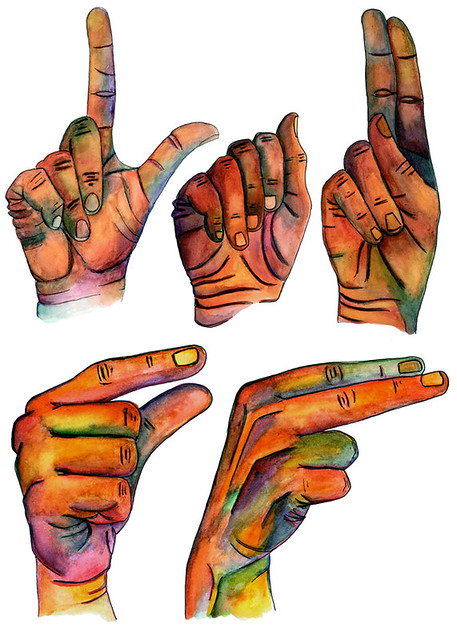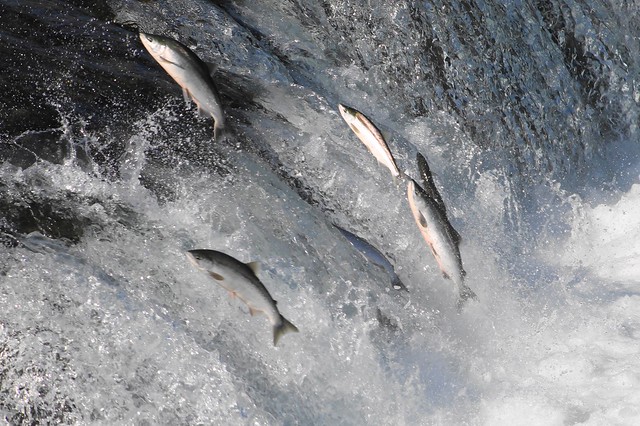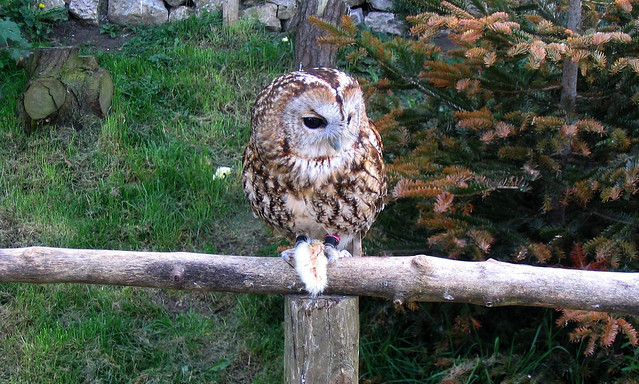Words for finger, toe and related things in Celtic languages.
| Proto-Celtic | *makro = finger |
|---|---|
| Old Irish (Goídelc) | mér [mʲeːr] = finger, digit, toe |
| Middle Irish (Gaoidhealg) | mér, mer, meóir, meúir = finger, digit, toe |
| Irish (Gaeilge) | méar [mʲeːɾˠ] = finger, digit, toe, leg (of crustaceans, mollusks, etc), arm (of a cuttle fish) an mhéar thosaigh/cholbha = the forefinger, index finger an mhéar fhada/láir/mheáin = (the) middle finger méar an fháinne = ring finger an mhéar bheag / lúidín / lúideog = (the) little finger méar coise = toe |
| Scottish Gaelic (Gàidhlig) | meur [miar] = finger, digit, branch (of an organisation/family), key (in music), point (of an antler), knot (in wood) meur-meomhair = forefinger, index finger meur-meadhain / (am) meur fada / (am) meur meadhanach = middle finger màthair na lùdaige / mac an aba / am madadh fada = ring finger meur beag an airgid / plaoisgeag = little finger |
| Manx (Gaelg) | mair = finger, digit, prong, ray, (piano) key, hand (of clock), tributary (of river) corrag / corvair = the forefinger, index finger mair vooar = the middle finger mair ny fainey = ring finger mair veg = the little finger mair chass / mair choshey = toe mair choshey veg / mair veg ny coshey = little toe |
Etymology: possibly from the Proto-Indo-European *mh₂ḱros (lean, meager), which is also the root of the English word meagre/meager, the French word maigre (meagre, skinny, lean, thin), and the Spanish word magro (lean)[source].
| Proto-Celtic | *bissī / *bistis = finger |
|---|---|
| Old Irish (Goídelc) | biss = icicle |
| Middle Welsh (Kymraec) | biss, byss, bys = finger, toe, latch |
| Welsh (Cymraeg) | bys [bɨːs / biːs] = finger (of hand/glove), toe; medium, agency; hand (of clock); latch bys bawd = thumb bys blaen = forefinger, index finger bys y cogwrn = middle finger (“knuckle finger”) bys y gyfaredd = ring finger bys bach = little finger, ear-finger; minute-hand bys(i)aid = as much as can be held on or taken up by the finger, a pinch byseddaf, byseddu, bysedda = to finger, thumb, use the fingers byseddog = having fingers, fingered byseg = thimble bysfedd = finger’s breadth, digit byson = ring for the finger |
| Old Cornish | bis/bes = finger |
| Middle Cornish (Cernewec) | bis, bes = finger bis truit = toe bisou, besaw = ring |
| Cornish (Kernewek) | bys, bes = finger, digit bys bras = thumb bys rag = index finger bys kres = middle finger bys bysow = ring finger bys byghan / bes bian = little finger byskon = thimble bysow, besow = ring |
| Middle Breton (Brezonec) | bes, bys, bis = finger besou, bisou = ring |
| Breton (Brezhoneg) | biz [biːs] = finger, hand (of clock), tooth (of tool), leg (of anchor), tentacle, tendril biz-meud = thumb biz-yod = index finger biz bras = middle finger biz-gwalenn / biz bizou = ring finger biz bihan / skouarnel = little finger bizou, bizoù [ˈbiːzu] = ring, jewel bizouier = jeweller bizour = jewel |
Etymology: from the Proto-Indo-European *gʷist- (twig, finger). The French word bijou (a piece of jewellry), comes from the same root, via the Breton bizoù (ring), from biz (finger) [source].
| Proto-Celtic | *māto = finger |
|---|---|
| Old Welsh (Kymraec) | máut = finger, toe, latch |
| Middle Welsh (Kymraec) | mawd, baut, bawd = finger, toe, latch |
| Welsh (Cymraeg) | bawd = thumb, big toe; claw (of crab), hoof bawd troed = big toe bawdheglaf, bawdheglu = to hitch-hike |
| Middle Cornish (Cernewec) | meut = thumb |
| Cornish (Kernewek) | meus = thumb meusva = inch meusya = to hitchhike |
| Middle Breton (Brezonec) | meut = thumb |
| Breton (Brezhoneg) | meud [ˈmøːt] = thumb, pincer, claw meud-troad = big toe, toe meudadenn = grip (of the thumb) meudata = to knead with one’s thumb |
Etymology: from the Proto-Indo-European *mē- [source].
| Old Irish (Goídelc) | ordu = thumb, big toe |
|---|---|
| Middle Irish (Gaoidhealg) | ordu, órdu = thumb, big toe |
| Irish (Gaeilge) | ordóg [ˈəuɾˠd̪ˠoːɡ] = thumb, big toe, claw, pincers, bit, piece, fragment ordóg coise = big toe |
| Scottish Gaelic (Gàidhlig) | òrdag [ɔːr̪ˠdag] = thumb, big toe òrdag-coise / òrdag-mhór = big toe òrdag-làimhe = thumb òrdag bheag an airgid = little toe, little finger |
| Manx (Gaelg) | ordaag = thumb ordaag chass / ordaag choshey / ordaag vooar = big toe |
Etymology: possibly from the Old Irish ord/ordd (hammer, piece, fragment, stub), from the Proto-Celtic *ordos (hammer) [source].
| Old Irish (Goídelc) | ladar = grasp, grip |
|---|---|
| Middle Irish (Gaoidhealg) | ladar, ladair = fork or space between the fingers or between the thumb and the rest of the hand; grip, grasp; space between the toes |
| Irish (Gaeilge) | ladhar [lˠaiɾˠ] = space between toes or fingers, toe, claw, prong, (clawed) hand ladhar mhór = big toe ladhar bheag = little toe laidhricín = little toe, little finger lúidín / lúideog = little finger, little toe lúidín coise = little toe |
| Scottish Gaelic (Gàidhlig) | ladhar [l̪ˠɤ.ər] = hoof, prong, toe, claw (of lobster) ladhrag [l̪ˠɤːrag] = toe, prong, hoof an ladhar mór = big toe lùdag / lùdag bheag / lùdag dhubh na catha [l̪ˠuːdag] = little finger, hinge |
Etymology: unknown [source].
Sources: Wiktionary, Am Faclair Beag, Online Manx Dictionary, Teanglann.ie, eDIL – Electronic Dictionary of the Irish Language, In Dúil Bélrai English – Old Irish glossary, Geiriadur Prifysgol Cymru, Gerlyver Kernewek, Dictionaire Favereau, TermOfis, English – ProtoCeltic WordList (PDF), Etymological Dictionary Of Proto Celtic











